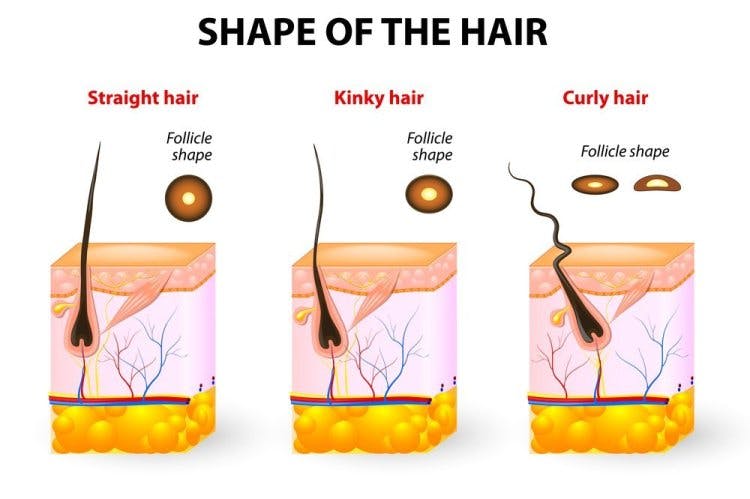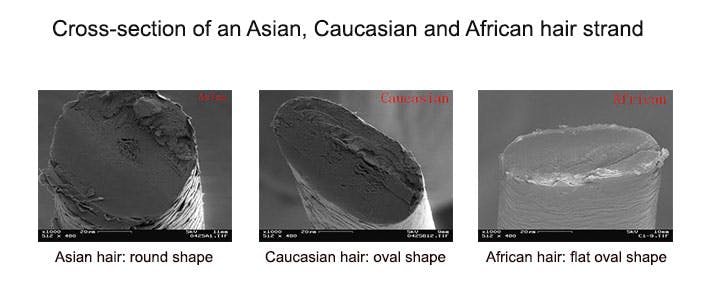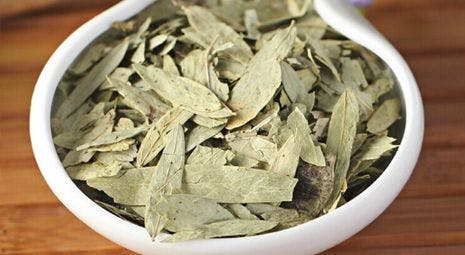How to grow a long natural hair faster in 3months
Published on May 13, 2020 at 4:46 PM by FACE OF MALAWI
Follow the steps below:
Understand The Structure of African Black Hair (tip 1)
It is important to understand the structure of Afro hair, in order to understand the best practices to help grow and manage it.
You simply cannot grow long natural hair without understanding how your hair structure functions and why it frizzes or curl.
It is commonly believed that the hair shaft of most 4b/c Afro hair types are flat with a more twisted structure and a thinner diameter compared with other hair types.
In addition to this, the curly nature of African hair makes it difficult for the oils from the root of the hair, to travel up to the ends of the hair.
For these reasons, Afro hair is more prone to dryness than other hair types, making it more vulnerable to breakage.


How To Grow Natural Hair: Tip 2
In addition to using the best natural hair products for Afro hair, I recommend following a strict 4c natural hair .
Braid your Afro hair often: This reduces the exposure of hair, hence less damage is done to your hair.
There are different styles of braids to go for such as Marley braids or box braids.
Whatever style you choose, make sure the braids are not too heavy on your natural hair which can cause further breakage.
When adding artificial hair to your braids, the key to healthy braiding is to add more of your natural hair into one braid and less of the artificial hair.
This way, the weight of the artificial hair will not pull out your natural hair.
Trim your hair when needed: It’s no secret that damaged hair tends to slow down the natural growth process of your hair.
The ends of the hair are usually damaged, dry and consist of split ends.
These unfavorable qualities could work themselves down to the shaft.
When you start noticing that your natural hair is getting constantly dry, it may be time for a serious trim to get rid of damaged ends.
Be sure to trim your hair once a month or whenever sees fit, which is an effective way to keep split ends at bay.
You can also get your hair trimmed by a professional stylist as they tend to use better scissors (or you can just buy the scissor yourself .
This may appear counterproductive to your growth plan, but turns out beneficial in the long run since it prevents further damage.
Wash your hair weekly: I can’t stress the importance of weekly washing enough.
You do not necessarily need to wash with a shampoo weekly but you must let your hair touch water.
My regimen consists of washing with water or conditioner weekly and washing with shampoo weekly
Wrap your hair with a satin bonnet at night: To avoid constant dryness of hair caused by overexposure to harsh environmental factors, make sure you wrap your natural hair.
This aids with moisture retention and since you cannot do this all the time during the day, you can always wear a scarf during the night.
A satin or silk scarf is recommended as they do not absorb oil like other fabrics.
Sleep with a satin pillowcase: To avoid oil getting sucked out of your hair while you sleep, use a silk or satin pillowcase.
Avoid frequent use of rubber bands:Tying black African hair back with rubber bands often cause breakage of hair. Opt for a softer hairband made from satin or silky fabrics. This way, you ensure your hair is healthy and prevent breakage in your natural hair.
Have Regular Deep Conditioner Protein Treatments: Black African hair is very much susceptible to breakage, so keep your Type 4 hair well moisturized.
Add to your hair growth regime a weekly homemade protein treatment for hair growth.
The main composition of the hair is a protein known as keratin. When chemical processing of hair is done, the protein bonds are broken down.
This weakens the hair and if this protein is not replaced, the hair will break.
Deep conditioning protein treatments help to fill in the strands of your hair where damage has occurred.
This will help prevent black African hair from breaking.
You can even make your own homemade protein treatment using egg whites and mayonnaise.
How to grow natural hair Tip 3:
Many women of African descent have this misconception that their hair doesn’t grow and therefore, there is no need to put time into nurturing it.
This, of course, leads to them neglecting their hair with improper care techniques, or by covering it up with wigs and hair extensions.
However, everybody’s hair grows; although, at different speeds, it certainly grows. With proper care and maintenance, you can even speed up your growth.
Being patient and understanding that your hair is growing, whilst using minimal manipulation techniques, are major contributing factors for long healthy hair growth.
How To Grow Natural Hair: Tip 4 –

Cassia Obovata is well known as one of the best herbs for growing natural hair, along with Fenugreek, Rosemary and Nettle.
Cassia works to grow and strengthen natural hair.
This is because Cassia nourishes the hair from the inside, not just with coating the hair.
What’s more, when combined with liquid Vitamin B Complex, it is very likely that you may see at least one-centimeter hair growth a week.
Chewe’ or ‘Chebe’ is a plant that goes by the scientific name of Croton Zambesicus (Also known as Lavender Croton).
This shrub is grown all over Africa, primarily in West Africa, mainly Ghana, Nigeria, Gambia and Burkina Faso.
It is used by women in Chad to thicken and strengthen natural hair by coating the hair strands.
How To Grow Natural Hair: Tip 5 –

The best tips for natural hair growth are of little use if only a small amount of the required nutrients arrives at the hair root.
The ultimate goal should be a balanced and healthy diet to maintain healthy and strong hair growth.
Food that helps with the growth of your natural hair should be consumed more.
Eating foods that are hair friendly will help in adding length to your hair.
A nutritional deficiency can cause hair to be dry, brittle and can also lead to disturbed melanin production, thus prematurely grayed hair.
You should therefore opt for foods rich with vitamins, minerals and protein.


